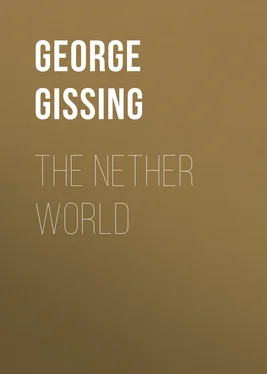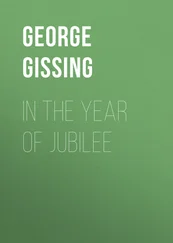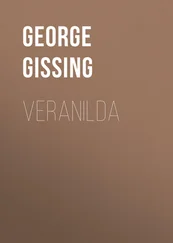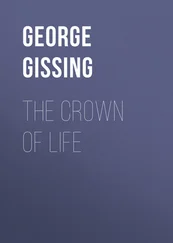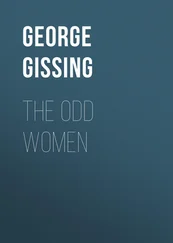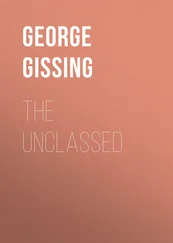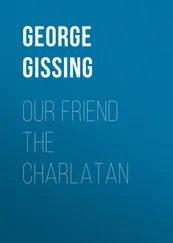George Gissing - The Nether World
Здесь есть возможность читать онлайн «George Gissing - The Nether World» — ознакомительный отрывок электронной книги совершенно бесплатно, а после прочтения отрывка купить полную версию. В некоторых случаях можно слушать аудио, скачать через торрент в формате fb2 и присутствует краткое содержание. Жанр: foreign_prose, literature_19, foreign_antique, на английском языке. Описание произведения, (предисловие) а так же отзывы посетителей доступны на портале библиотеки ЛибКат.
- Название:The Nether World
- Автор:
- Жанр:
- Год:неизвестен
- ISBN:нет данных
- Рейтинг книги:5 / 5. Голосов: 1
-
Избранное:Добавить в избранное
- Отзывы:
-
Ваша оценка:
- 100
- 1
- 2
- 3
- 4
- 5
The Nether World: краткое содержание, описание и аннотация
Предлагаем к чтению аннотацию, описание, краткое содержание или предисловие (зависит от того, что написал сам автор книги «The Nether World»). Если вы не нашли необходимую информацию о книге — напишите в комментариях, мы постараемся отыскать её.
The Nether World — читать онлайн ознакомительный отрывок
Ниже представлен текст книги, разбитый по страницам. Система сохранения места последней прочитанной страницы, позволяет с удобством читать онлайн бесплатно книгу «The Nether World», без необходимости каждый раз заново искать на чём Вы остановились. Поставьте закладку, и сможете в любой момент перейти на страницу, на которой закончили чтение.
Интервал:
Закладка:
Over the fireplace, the stained wall bore certain singular ornaments. These were five coloured cards, such as are signed by one who takes a pledge of total abstinence; each presented the signature, 'Maria Candy,' and it was noticeable that at each progressive date the handwriting had become more unsteady. Yes, five times had Maria Candy promised, with the help of God, to abstain,' &c. &c.; each time she was in earnest. But it appeared that the help of God availed little against the views of one Mrs. Green, who kept the beer-shop in Rosoman Street, once Mrs. Peckover's, and who could on no account afford to lose so good a customer. For many years that house, licensed for the sale of non-spirituous liquors, had been working Mrs. Candy's ruin; not a particle of her frame but was vitiated by the drugs retailed there under the approving smile of civilisation. Spirits would have been harmless in comparison. The advantage of Mrs. Green's ale was that the very first half-pint gave conscience its bemuddling sop; for a penny you forgot all the cares of existence; for threepence you became a yelling maniac.
Poor, poor creature. She was sober to-night, sitting over the fire with her face battered into shapelessness; and now that her fury had had its way, she bitterly repented invoking the help of the law against her husband. What use? what use? Perhaps he had now abandoned her for good, and it was certain that the fear of him was the only thing that ever checked her on the ruinous road she would so willingly have quitted. But for the harm to himself, the only pity was he had not taken her life outright. She knew all the hatefulness of her existence; she knew also that only the grave would rescue her from it. The struggle was too unequal between Mrs. Candy with her appeal to Providence, and Mrs. Green with the forces of civilisation at her back.
Pennyloaf speedily returned with a ha'p'orth of milk, a pennyworth of tea, and seven pounds (also price one penny) of coals in an apron. It was very seldom indeed that the Candys had more of anything in their room than would last them for the current day. There being no kettle, water was put on to boil in a tin saucepan; the tea was made in a jug. Pennyloaf had always been a good girl to her mother; she tended her as well as she could to-night; but there was no word of affection from either. Kindly speech was stifled by the atmosphere of Shooter's Gardens.
Having drunk her tea, Mrs. Candy lay down, as she was, on the already extended mattress, and drew the ragged coverings about her. In half an hour she slept.
Pennyloaf then put on her hat and jacket again and left the house. She walked away from the denser regions of Clerkenwell, came to Sadler's Wells Theatre (gloomy in its profitless recollection of the last worthy manager that London knew), and there turned into Myddelton Passage. It is a narrow paved walk between brick walls seven feet high; on the one hand lies the New River Head, on the other are small gardens behind Myddelton Square. The branches of a few trees hang over; there are doors, seemingly never opened, belonging one to each garden; a couple of gas-lamps shed feeble light. Pennyloaf paced the length of the Passage several times, meeting no one. Then a policeman came along with echoing tread, and eyed her suspiciously. She had to wait more than a quarter of an hour before Bob Hewett made his appearance. Greeting her with a nod and a laugh, he took up a leaning position against the wall, and began to put questions concerning the state of things at her home.
'And what'll your mother do if the old man don't give her nothing to live on?' he inquired, when he had listened good-naturedly to the recital of domestic difficulties.
'Don't knew,' replied the girl, shaking her head, the habitual surprise of her countenance becoming a blank interrogation of destiny.
Bob kept kicking the wall, first with one heel, then with the other. He whistled a few bars of the last song he had learnt at the music-hall.
'Say, Penny,' he remarked at length, with something of shamefacedness, 'there's a namesake of mine here as I shan't miss, if you can do any good with it.'
He held a shilling towards her under his hand. Pennyloaf turned away, casting down her eyes and looking troubled.
'We can get on for a bit,' she said indistinctly.
Bob returned the coin to his pocket. He whistled again for a moment, then asked abruptly:
'Say! have you seen Clem again?'
'No,' replied the girl, examining him with sudden acuteness. 'What about her?'
'Nothing much. She's got her back up a bit, that's all.'
'About me?' Pennyloaf asked anxiously.
Bob nodded. As he was making some further remarks on the subject, a man's figure appeared at a little distance, and almost immediately withdrew again round a winding of the Passage. A moment after there sounded from that direction a shrill whistle. Bob and the girl regarded each other.
'Who was that?' said the former suspiciously. 'I half believe it was Jeck Bartley. If Jeck is up to any of his larks, I'll make him remember it. You wait here a minute!'
He walked at a sharp pace towards the suspected quarter. Scarcely had he gone half a dozen yards, when there came running from the other end of the Passage a girl whom Pennyloaf at once recognised. It was Clem Peckover; with some friend's assistance she had evidently tracked the couple and was now springing out of ambush. She rushed upon Pennyloaf, who for very alarm could not flee, and attacked her with clenched fists. A scream of terror and pain caused Bob to turn and run back. Pennyloaf could not even ward off the blows that descended upon her head; she was pinned against the wall, her hat was torn away, her hair began to fly in disorder. But Bob effected a speedy rescue. He gripped Clem's muscular arms, and forced them behind her back as if he meant to dismember her. Even then it was with no slight effort that he restrained the girl's fury.
'You run off 'ome!' he shouted to Pennyloaf. 'If she tries this on again, I'll murder her!'
Pennyloaf's hysterical cries and the frantic invectives of her assailant made the Passage ring. Again Bob roared to the former to be off, and was at length obeyed. When Pennyloaf was out of sight he released Clem. Her twisted arms caused her such pain that she threw herself against the wall, mingling maledictions with groans. Bob burst into scornful laughter.
Clem went home vowing vengeance. In the nether world this trifling dissension might have been expected to bear its crop of violent language and straightway pass into oblivion; but Miss Peckover's malevolence was of no common stamp, and the scene of to-night originated a feud which in the end concerned many more people than those immediately interested.
CHAPTER IX
PATHOLOGICAL
Through the day and through the evening Clara Hewett had her place behind Mrs. Tubbs's bar. For daylight wear, the dress which had formerly been her best was deemed sufficient; it was simple, but not badly made, and became her figure. Her evening attire was provided by Mrs. Tubbs, who recouped herself by withholding the promised wages for a certain number of weeks. When Clara had surveyed this garment in the bar mirror, she turned away contemptuously; the material was cheap, the mode vulgar. It must be borne with for the present, like other indignities which she found to be inseparable from her position. As soon as her employer's claim was satisfied, and the weekly five shillings began to be paid, Clara remembered the promise she had volunteered to her father. But John was once more at work; for the present there really seemed no need to give him any of her money, and she herself, on the other hand, lacked so many things. This dress plainly would not be suitable for the better kind of engagement she had in view; it behoved her first of all to have one made in accordance with her own taste. A mantle, too, a silk umbrella, gloves—It would be unjust to herself to share her scanty earnings with those at home.
Читать дальшеИнтервал:
Закладка:
Похожие книги на «The Nether World»
Представляем Вашему вниманию похожие книги на «The Nether World» списком для выбора. Мы отобрали схожую по названию и смыслу литературу в надежде предоставить читателям больше вариантов отыскать новые, интересные, ещё непрочитанные произведения.
Обсуждение, отзывы о книге «The Nether World» и просто собственные мнения читателей. Оставьте ваши комментарии, напишите, что Вы думаете о произведении, его смысле или главных героях. Укажите что конкретно понравилось, а что нет, и почему Вы так считаете.
